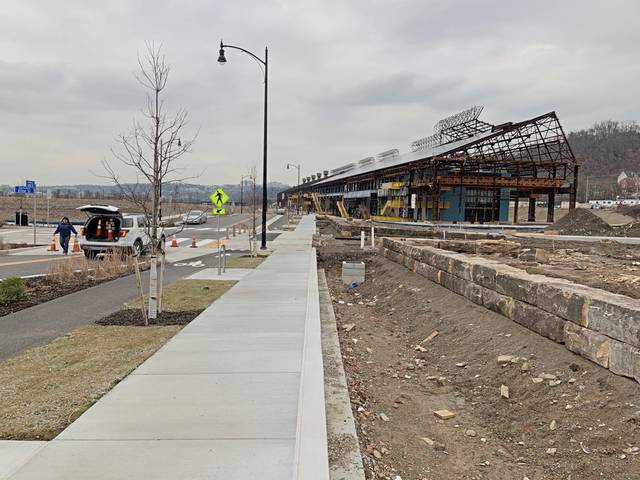When the switch flipped on for Mill 19 at Hazelwood Green last month, I felt a rush of gratitude for the union workers who had stood on netting hammocked between steel beams 85 feet off the ground. Slow, steady and with great skill, they’d clamped on each of the 4,968 solar panels that form the long, angled roof.
Renovating an old steel mill to generate clean, affordable energy is a tangible bridge away from dirty fossil fuels. And by the way, we’ve got plenty of photons to capture in the sun’s energy, even here in often cloudy and overcast Pittsburgh.
The project is more than the largest single sloped solar array in the United States. It’s about taking action to improve our city’s poor air quality that disproportionately impacts lower income neighborhoods and people of color. These residents are at higher risk of heart disease and respiratory health problems, which increases the risk of dying from covid-19. Pittsburgh ranks as the 8th most polluted city in the nation for airborne particulates or soot.
We can and will do better. Here’s what Mill 19 alone achieves: The solar panel array will generate 2.5 megawatts, enough to power the equivalent of 264 homes per year. The lifetime CO2 emissions savings of the array is the equivalent of 62.5 million pounds of coal.
But there’s a problem. Just when we should be accelerating solar projects, companies like ours that support local construction jobs have taken a financial hit during the economic downturn that’s tied to the coronavirus pandemic. A new report showed a 13% decline in jobs in the renewable energy sector since March.
Meanwhile, climate-fueled disasters are harming local communities and threatening ecosystems. Clean energy investments are crucial to mitigate climate change.
Congress did include an extension of the federal investment and production tax credits for solar in the recent stimulus bil l— providing certainty of support for the industry, and helping ensure we can continue working to clean up Pittsburgh’s air with solar alternatives. However, with the economy and clean energy businesses struggling as they are, making these credits into direct payments would ensure they deliver maximum, immediate impact.
Congress should continue supporting the recovery of America’s clean energy economy as part of any much-needed economic recovery package after President-elect Joe Biden takes office. Supporting the growth of clean energy over the next decade is critical for a growing economy, the climate, and public health.
Pennsylvania ranks 22nd nationally in solar installed, enough solar to power 67,620 homes. That’s not bad, but still represents only less than half a percent of the state’s energy. How do we move up into the top ten, like New Jersey has done? In addition to federal policy, the state should also increase its 2004 Alternative Energy Portfolio Standard that requires just eight percent of our electricity to come from renewable energy by May of 2021, with only half of one percent from solar. In contrast, most neighboring states have renewable energy goals of 50% or more by 2030.
Raising Pennsylvania’s renewable energy goals to 30% by 2030 with 10% solar would create upwards of 100,000 jobs in the next 10 years, without requiring a dime from state coffers. What does that mean for the union workers who installed Mill 19’s solar panels high above the ground? More jobs and more opportunities to learn new skills and be on the forefront of clean energy construction.
We all deserve to breathe healthy air, no matter where we live. Mill 19 and Hazelwood Green flip the switch for a new era of revitalization and helps put Pittsburgh on the map for sustainable innovations. Let’s celebrate the foundations, companies and individuals who made this project possible — and then move forward with courage to change our ranking from one of the worst regions for polluted air to one of the cleanest.
Michael Carnahan is vice president and general manager of Pittsburgh-based Scalo Solar Solutions.








